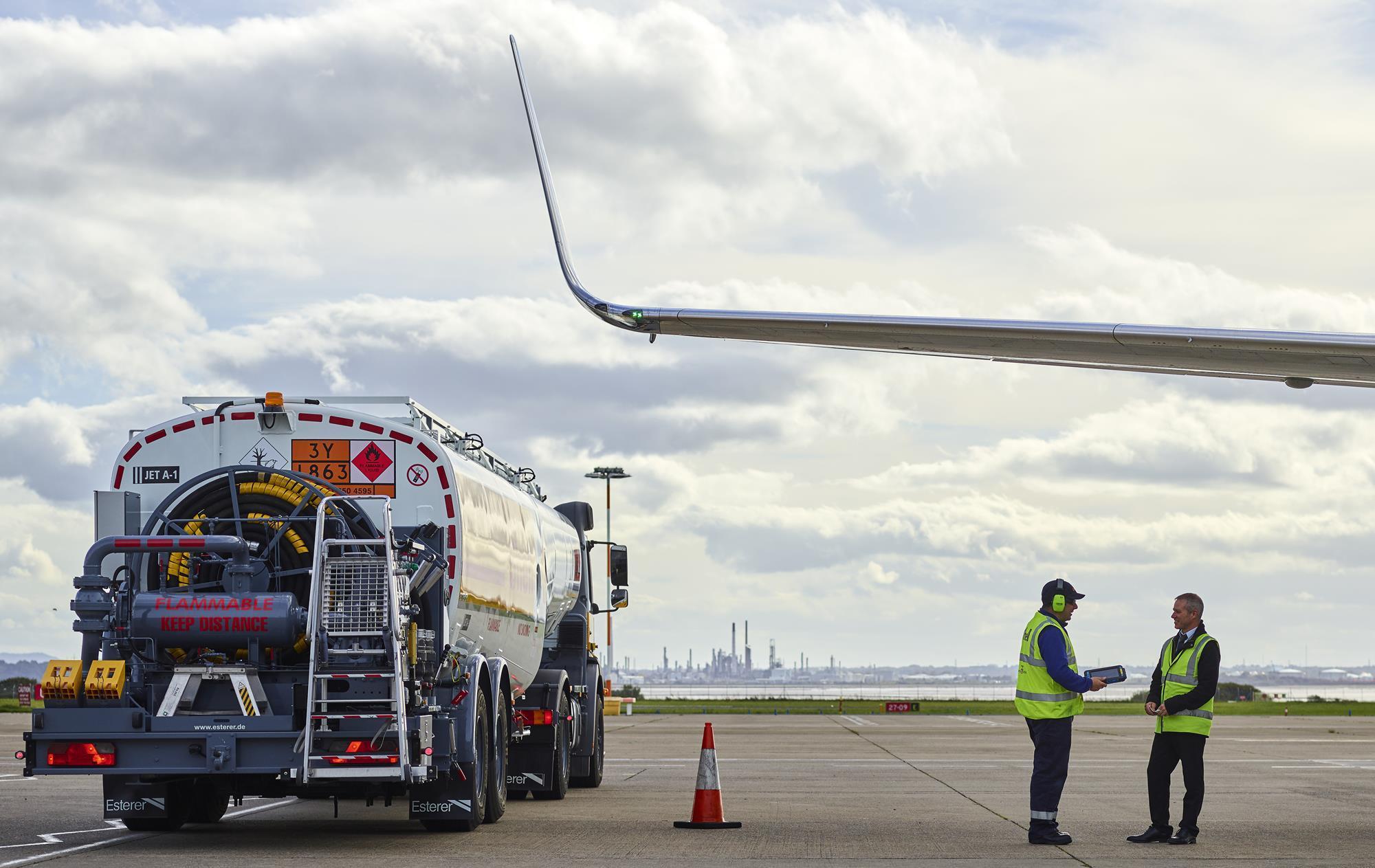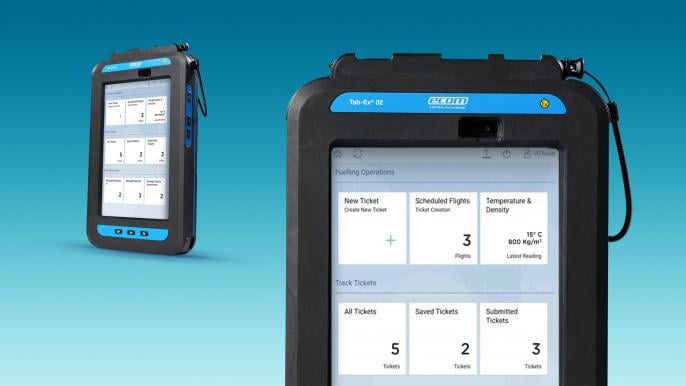Digital Efficiencies: Bringing Aircraft Refuelling Into The 21st Century

Ground-based flight operations rely on a series of tightly managed processes that depend on the efficiency of one another, and any deviation in these can have serious enough consequences to ground a flight altogether.
This type of occurrence comes with a hefty price tag for an airline, and every unnecessary minute an aircraft spends on the ground is a minute that an airline pays in one way or another for it not being in the air.
Add to this the extremely high safety rules that govern aviation, and it becomes clear that in order to deliver all of these requirements, efficiency in all aspects of the busy flight operation is key to ensure that flights run on time, to the required safety standards, and within operating cost margins.
Saying goodbye to outdated paper processes
A key element of airside operations is aircraft refuelling – an essential part of the process that is benefitting from an investment in digitisation.
While it has always been critical to airport operations overall, the refuelling process has typically been more traditional in its management, relying on outmoded paper-based processes and manual handoffs. This means it’s a matter of when, not if, refuelling errors will occur – a single miswritten number can take hours to rectify.
These errors in data transmission during the refuelling process can lead to longer turnaround times and impact profitability.
Digitisation and the application of emerging technologies is being applied to operations on the apron to increase efficiencies and in turn reduce costs.
Shell Aviation has long identified that refuelling efficiency could be significantly improved with a boost in technology. To stay ahead of the technology curve, 2019 alone saw Shell invest $962m into research and development globally, and it is one of the only energy companies with a dedicated R&D centre for aviation.
"We believe that aircraft refuelling actually sits right at the centre of some of the most exciting technological developments shaping aviation today," notes Thomas de Boer, Head of Operations at Shell Aviation.
He adds that the aviation industry operates on delicately balanced operating margins, so customers are "constantly challenged to maximise efficiency and look for innovations that could help improve turnaround times".
Shell has been working closely with its customers to identify where technology can help improve apron-side operations, and one such innovation that is currently delivering operational excellence is its Shell SkyPad Data Exchange management system.
A touchless apron
Shell SkyPad Data Exchange is available at all locations where SkyPad is deployed, and is currently being trialled by a number of major airlines around the world.
Introduced with partner airline Lufthansa in August 2020, the new Data Exchange upgrade builds on the success of Shell SkyPad, a data management system launched in 2017 that shaves minutes off the refuelling process to minimise turnaround times.
Shell SkyPad offers an easy and uniform flow of better-quality data and information, including integration with airport data such as Flight Information Display System (FIDS), as well as an automated truck flowmeter reading via Bluetooth Meter Integration to minimise manual data inputs, and seamless integration with Shell’s back-end Invoicing System.
"Shell SkyPad provides an intelligent solution in ensuring compliance as we do business," says De Boer. "Its built-in Trade Compliance feature validates the Aircraft Registration and Country of Destination in real-time to filter-out, perform due diligence check, and disallow fuelling of embargoed flights."
De Boer explains how one of the key opportunities Shell Aviation observed was "a big push for collaborative technology development". For example, different airlines have different cockpit apps, which often makes "transmitting the data from system to system challenging, and integration of new technology very complex".
Using a handy and mobile tablet-based design, the new Data Exchange feature allows integration with airline systems that adhere to IATA Fuel Data Standards. Data is exchanged between pilots and apron operators via a real-time communications tool. By connecting pilots and refuellers in real-time, Shell SkyPad Data Exchange removes the need for the pilot to leave the cockpit and can save between 8 to 13 minutes in refuelling time.
"This is all part of moving away from static to more dynamic flight scheduling when it comes to fuelling operations," explains De Boer.

Taking digital operations one step further
Shell SkyPad marked a step-change for apron-side operations via its transition from paper-based data handling to a digital format in 2017, and the evolution of the Data Exchange functionalities takes this market-leading system one step further.
Proof of its appeal comes from the decision by Lufthansa to upgrade its existing SkyPad systems to include the Data Exchange functionality, and Shell is offering the enhancement to both new and existing customers.
Kai Liedtke, Lufthansa Group Head of Fuel Purchasing, commented: "Shell SkyPad Data Exchange is another important step into fully digitising and automating the apron. The established real-time communication makes the fuelling process significantly safer, faster and more efficient."
Cathay Pacific has also successfully implemented Shell SkyPad Data Exchange in Singapore. Captain James Toye, Cathay Pacific’s project implementation lead, said that "bringing digital refuelling to Singapore Changi Airport is a huge step forward", adding that he expected it deliver both "efficiency and accuracy gains".
Moreover, while there are efficiency benefits with a system like this, the contactless aspect of the system reduces the need for human contact, something could be helpful as companies implement measures to protect their staff and limit the spread of the COVID-19 virus.
"We always put our end users in mind. In addition to helping our customers protect their bottom line, we are proud to deliver a solution that also helps them protect their teams," says de Boer.
Fully digitalised airside operations
Another example of Shell’s innovation in refuelling efficiencies is its pilot of new digital apron solutions at Dubai Airport. The pilot will utilise technology to send operators to the right stand, at the right time and with the right volume of fuel to maximise the number of refuellings. Smart telemetry, enabling remote monitoring, resource allocation and dynamic scheduling are just some of the features being explored.
Ultimately Shell is working to deliver fully digitised refuelling to optimise efficiency and maximise accuracy, and these innovations will contribute to that goal.
"Digital refuelling innovations are helping to drive efficiencies and improve airlines’ turnaround times at a moment when keeping costs down has never been more important," adds de Boer.




